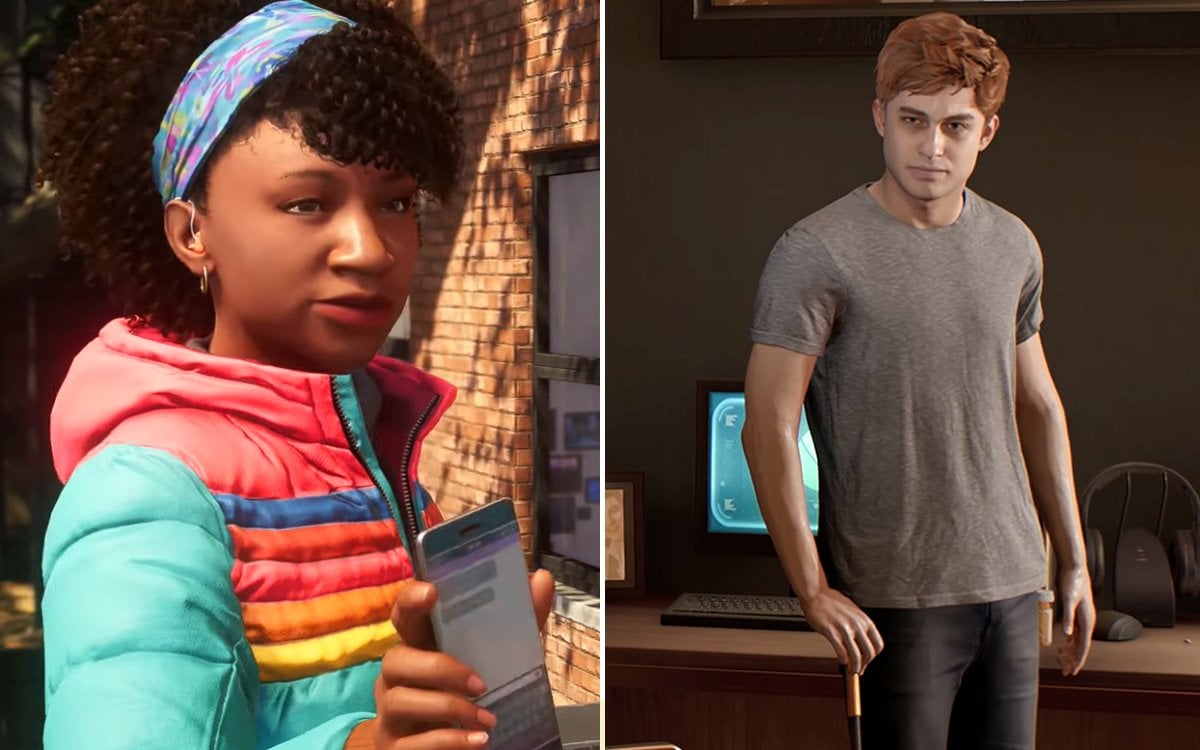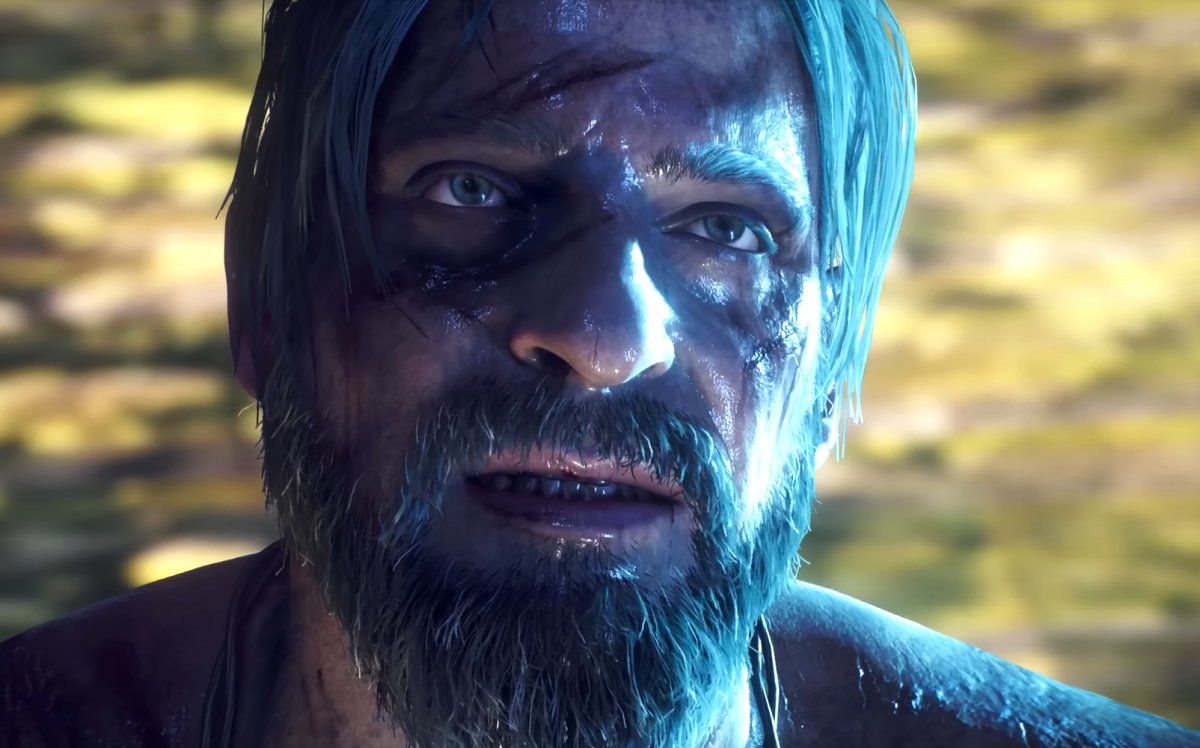How ‘Marvel’s Spider-Man 2’ Tells a Story About Healthcare and Accessibility

Disability and illness have always been a complicated part of the Spider-Man universe. Most of the major villains we’ve seen in the Spider-Man games—including the recently released Marvel’s Spider-Man 2—have either a terminal illness or a serious disability.
Doc Ock has a neurological disorder that’s affecting his motor functions (we can see in the new game’s post-credit scenes that his condition is worsening); Mr. Negative only has his powers because of an experimental cure for a medical condition; the Lizard became the Lizard because he tried to regrow his missing arm; Kraven has terminal cancer; and Harry Osborn has the same terminal illness that killed his mother and has reduced his mobility. Among the side villains, Vulture is another villain with cancer, and Sandman definitely needs mental health help that he doesn’t get until the Spider-Men step in.
This being Spider-Man, a lot of this is presented in a fantastical way. For example, to heal Sandman you have to find the pieces of his mind that are scattered into sand crystals throughout the city. Jeez, if only it was that easy in real life. But the game’s still got quite a lot to say about healthcare in the real world.
***Major spoilers for Marvel’s Spider-Man 2 ahead***
A huge, highly anticipated boss fight happens during the third act of Marvel’s Spider-Man 2. Kraven the Hunter goes up against Venom, the twisted monster that once was Harry Osborn, and only one of them is coming out of the battle alive.
These two men, or things that used to be men, have something in common. “Do you know what it’s like to have your body betray you?” Kraven screams during the fight. And that line sums up a lot of the game’s themes with regard to its villains.
Harry Osborn and Kraven the Hunter
Spider-Man 2 focuses a lot on Harry and Kraven and what each of them does to deal with their body’s “betrayal.” Harry has a cane to help him walk, but he sees it as a sign of weakness and hurls it against a window in rage at one point. It’s indicated that he believes his father Norman especially sees him as weak, and after he sees Norman praising Peter, that’s what sees him fly into the aforementioned rage, as it seems to be motivated by a suppressed jealousy of the able-bodied Peter.
“Disabled man is jealous of his non-disabled friend” is a trope I could have done without and that’s definitely the weakest part of the game’s story in my opinion. However, it is understandable that someone in a situation like Harry’s would feel a lot of resentment. He’s dying, after all! There’s one scene where we note all the pills that are temporarily keeping him alive, and then the black-suited symbiote-corrupted Peter makes a snide remark to Harry about them. As someone who also takes a lot of pills, that hit close to home. Peter’s complete lack of compassion there (even if he’s not really exactly “Peter” at that point in time) is unfortunately quite representative of the attitude some people have toward medication in real life. I cannot even begin to tell you the sheer horror that went through me when I heard about the burgeoning moral panic over SSRIS: Those things keep me alive, and though I may resent the situation, I’m immensely grateful that I have them.
Death, dying, and family

But back to our story. Kraven serves as a foil to Harry/Venom. His body still obeys his commands and he’s basically a one-man army when it comes to fighting and killing … but he’s still dying. The entire point of his “great hunt” is to find someone or something that will give him a glorious death in battle rather than one in a sickbed.
You could see both the Harry and Kraven stories as being about the importance of palliative healthcare and mental health support within it. Kraven never accepts the “weakness” of his own impending death and encourages Venom to take him out in a horrific way, which Venom gladly does. But Harry on the other hand comes to accept that the symbiote will not keep him alive, and he ends up dying—well, mostly dying—in Peter’s arms, smiling, and knowing he is loved.
Which brings me to what I think is the overall “message” of this video game’s story: care, love and support from those around you is perhaps the most important thing when facing illness, death or disability. Plenty of the “villains” (really, some of them aren’t even villains) in this game are simply people who are suffering and aren’t getting the support they need. Curt Connors’ family has left him, so he has no one to turn to when dealing with his Lizard transformation. Sandman needed help before the events of the game even started, but he points out in his memories that no one was willing to listen to him.
It’s also made very clear in the game that prison doesn’t help these people at all. Mr. Negative says during his team-up with Miles, “Not every problem can be solved with a cell,” and Miles agrees.
Hailey Cooper
There’s one major disabled character in the game who never goes anywhere near supervillainy: Miles’ girlfriend Hailey. She is Deaf, and throughout the entire game, she has all the assistive technology and support she needs—a text-to-speech device, sign language interpreters, plus everyone around her has learned ASL. So she doesn’t look for or need a “cure” for her disability like the one Connors, for example, was seeking for his. (Also, the game actually gives the player a mission to do as Hailey, which was totally unexpected but fantastic.)
I’ll be very interested to see how a third game—because it’s almost inevitable that one will come along at some point—continues to evolve all these characters. I would very much like it if characters such as Connors and Harry got to live happy lives in the end, with assistive technology and medication for their conditions and, of course, support from their loved ones.
As Aunt May says—when you help someone, you help everyone.
(featured image: Sony)
Have a tip we should know? [email protected]
